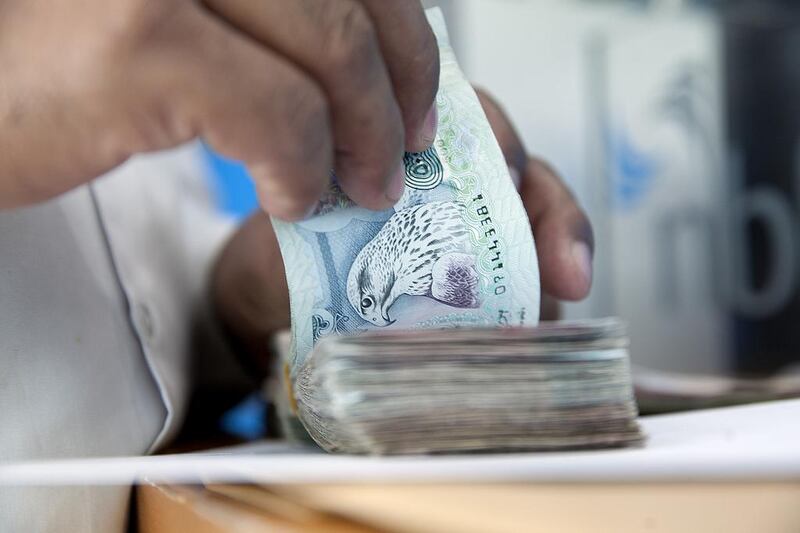The introduction of VAT in the UAE may raise up to 1.7 per cent of the country’s gross domestic product, the rating agency Moody’s said.
“The implementation of VAT in the UAE marks a positive step towards revenue diversification,” said Thaddeus Best, a Moody’s analyst and co-author of the report.
The UAE's 5 per cent VAT on goods and services introduced on January 1, may raise up to Dh24 billion per year in additional revenues for the country although take-up is likely to be lower in the first few years, Mr Best said.
Under VAT rules, the federal government will retain 30 per cent of the revenues, with the rest distributed across the emirates, according to an yet to be announced sharing formula.
“Depending on the structure of the formula, it could potentially have redistributive effects for the less wealthy emirates such as Sharjah,” the report said. However, this would be an indirect outcome, it added.
VAT implementation has had only a "modest" impact on inflation, the agency said and any inflationary impact on household purchasing power has been mitigated by zero-rated and exempt items (such as certain educational, healthcare and transport services in the country as well as the first sale or rent of residential buildings), and by deflationary trends in the real estate market.
____________
Read more:
[ How VAT in the UAE will affect you ]
[ FTA: More than 275,000 businesses registered for VAT ]
____________
Moody’s said the exemptions and zero ratings announced by the government this year had a minimal inflationary impact on sectors such as health care, education and housing. Price increases in sectors such as transportation were also “relatively benign”.
A draft law under consideration to introduce federal-level debt issuance “would not represent a significant shift in the fiscal structure of the UAE”, the report added. The main beneficiary would be the local banking sector, which would receive a stable supply of high-quality liquid assets.






